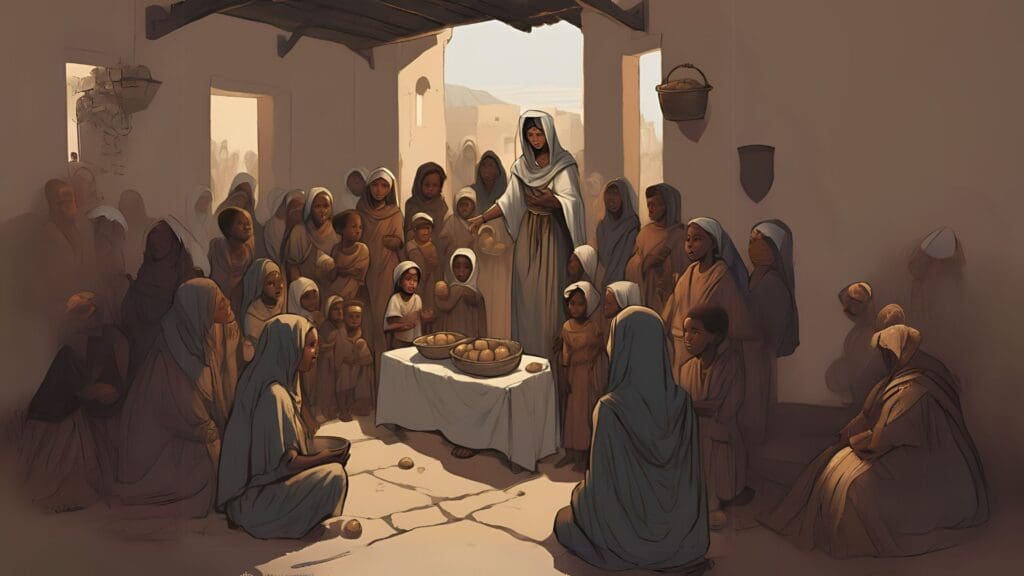Reducing Poverty in America
Poverty has been a persistent issue throughout human history, and its eradication remains a significant challenge today. As a Christian man or woman, you understand the importance of addressing this issue not only through practical means but also through the wisdom found in the Bible.
Historical Context of Poverty in America
The history of poverty in America is complex and multifaceted. From the early colonial period to the present day, various factors have contributed to economic disparity. During the Great Depression of the 1930s, poverty reached unprecedented levels, prompting the government to implement New Deal programs aimed at providing relief and creating jobs. These efforts, though not without flaws, demonstrated the potential for coordinated action to alleviate poverty.
In the 1960s, President Lyndon B. Johnson’s “War on Poverty” sought to address the root causes of poverty through initiatives like Medicare, Medicaid, and food assistance programs. While these measures helped reduce poverty rates, they also highlighted the need for ongoing efforts and the importance of addressing systemic issues such as education and employment opportunities.
Biblical Teachings on Poverty
The Bible offers profound insights into the nature of poverty and the responsibility of believers to address it. In the Old Testament, the concept of justice is closely linked to caring for the poor. The prophets frequently called out the injustices that led to poverty and urged the people of Israel to act justly and compassionately.
One notable example is found in the book of Deuteronomy, where God commands the Israelites to leave a portion of their harvest for the poor and the foreigners living among them (Deuteronomy 24:19-21). This practice, known as gleaning, ensured that the most vulnerable members of society had access to food. It reflects a broader biblical principle of providing for those in need and promoting social justice.
In the New Testament, Jesus’ teachings further emphasize the importance of caring for the poor. In the Sermon on the Mount, Jesus instructs His followers to give to those who ask and not to turn away anyone who wants to borrow (Matthew 5:42). This radical generosity is a hallmark of Christian discipleship and a powerful antidote to poverty.
Early Christian Practices
The early Christian community exemplified these teachings through their actions. The book of Acts describes how believers shared their possessions and ensured that no one among them was in need (Acts 4:32-35). This communal approach to wealth and resources was a practical expression of their faith and a testament to the transformative power of the Gospel.
Early Christians also established systems of care for the poor, such as the creation of deacon ministries to distribute food and aid to widows and orphans (Acts 6:1-6). These efforts were not merely acts of charity but were rooted in a deep sense of justice and solidarity with the marginalized.

Modern Applications
Drawing from these historical and biblical examples, we can identify several principles that can guide our efforts to reduce poverty in America today:
- Justice and Advocacy: Like the prophets of old, we must advocate for systemic changes that address the root causes of poverty. This includes supporting policies that promote fair wages, affordable housing, and access to quality education and healthcare.
- Generosity and Compassion: Following Jesus’ example, we are called to practice radical generosity. This can take many forms, from personal acts of kindness to supporting organizations that provide direct assistance to those in need.
- Community and Solidarity: The early Christian model of sharing resources and caring for one another reminds us of the importance of community. By fostering strong, supportive communities, we can create networks of care that help lift people out of poverty.
- Empowerment and Opportunity: Providing opportunities for education and employment is crucial in breaking the cycle of poverty. Programs that offer job training, mentorship, and support for small businesses can empower individuals to achieve economic stability.
- Faith and Action: Our faith compels us to act. As believers, we are called to be the hands and feet of Christ in the world, working tirelessly to alleviate suffering and promote justice.
Conclusion
Reducing poverty in America is a complex and ongoing challenge, but by drawing on the wisdom of history and the teachings of the Bible, we can find inspiration and guidance. The examples of the early Christian community, the prophetic calls for justice, and Jesus’ teachings on generosity and compassion provide a powerful framework for action.
As we work to address poverty in our communities, let us remember that our efforts are not just about providing material assistance but about embodying the love and justice of God. By advocating for systemic change, practicing radical generosity, fostering community, empowering individuals, and living out our faith through action, we can make a meaningful impact in the fight against poverty.
Together, let us strive to create a society where everyone has the opportunity to thrive, reflecting the kingdom values of justice, compassion, and love.


